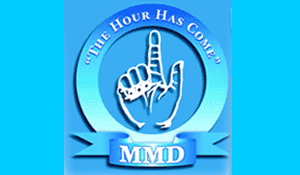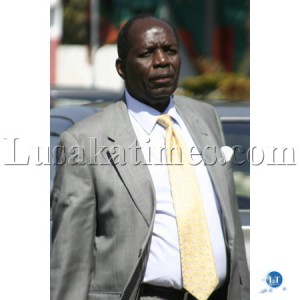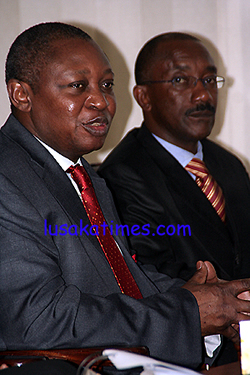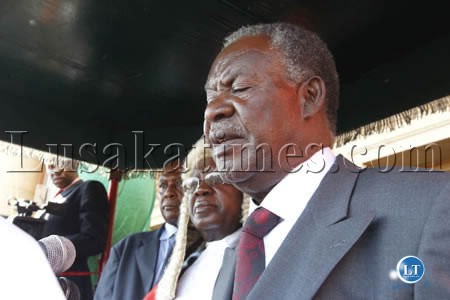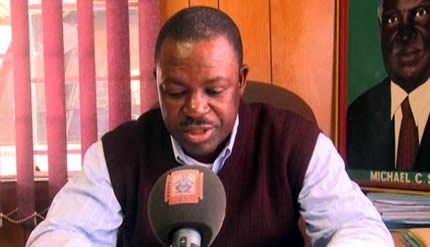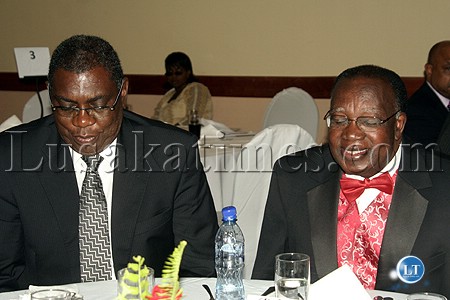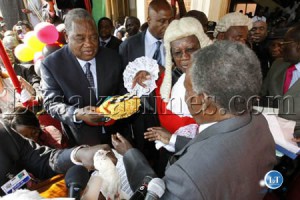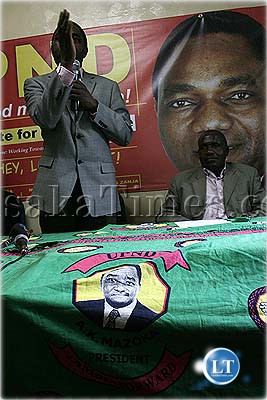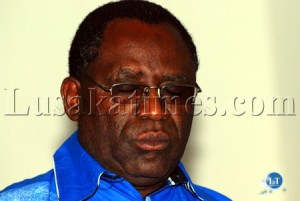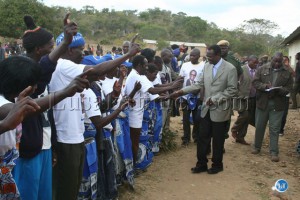
By Gray Soko
In his farewell speech RB posed a few questions about the MMD’s defeat which the MMD postmortem meeting will undoubtedly ponder over. RB posed the following questions:
-had the MMD become complacent ?
-had the MMD failed to hear ( despite its claim to be a listening party)?
– had the MMD become grey and lacking in ideas?
– had the MMD lost momentum ( after 20years in power ) ?
Anyone can be clever after the event and I do not claim to have the best answers to RB’s questions but I feel that the MMD, like UNIP in 1991, suffered from serious intelligence blunders. I suggest these blunders were around the following factors:
Lack of knowledge of the opposition
The great military strategist Sun Tzu said that if you know neither yourself nor the enemy, you are a fool and will meet defeat in battle. The MMD campaign was almost exclusively targeted at Sata as an individual and largely ignored the fact that the PF was an organization with structures and personnel in other parts of the country who were vigorously recruiting or strengthening its membership. Surrogate personalities such as Chimba Chimba 111, Mumbi, Lifwekelo, Chifire and Siulapwa were therefore wrongly seen as assets in the arsenal against Sata and ultimately the PF.
Overconfidence
Having been in power for 20years there was overconfidence of the party’s invincibility. Vice-President then George Kunda even declared that the MMD would rule Zambia for a very long time, if not forever! This overconfidence was also reflected during the election campaign when the MMD leadership declared in Luapula that it would win all the fourteen seats. As it turned out, it lost in all but one of the constituencies. Was this overconfidence based on fact or falsification of intelligence for political or personal purposes?
Ignorance/Failure to comprehend the facts
The economic parameters that were being presented to show that there was “development” and therefore the party was popular with the people failed to acknowledge the fact that there were still very high unemployment and poverty levels in the country. The majority of the people were still living below the poverty line. There is also the dangerous indication of the rich getting richer and the poor getting poorer. The country’s elevation to a lower middle income country status does not mean the benefits of the economic growth are trickling down to the majority.
Statistics on unemployment, poverty levels, mortality or the food basket requirements from the government’s own Central Statistical office or credible NGOs like the Jesuit Centre for Theological Reflection (JCTR ) were often downplayed.
Gullibility
Great prominence was given to favourable comments from diplomats and international institutions about Zambia’s economic growth and the public media in particular made repeated headlines of favourable election victory predictions from institutions such as the Economic Intelligence Unit, Stanbic Bank and even on the eve of the election quoted the Washington Post as predicting MMD victory. There was little if any coverage of predictions which stated otherwise.
It is however possible that the correct intelligence was available but was either ignored or worse, spinned to support what the party wanted to hear. UNIP and now the MMD failed to see the writing on the wall. I hope the PF will not fall into similar intelligence blunders.


